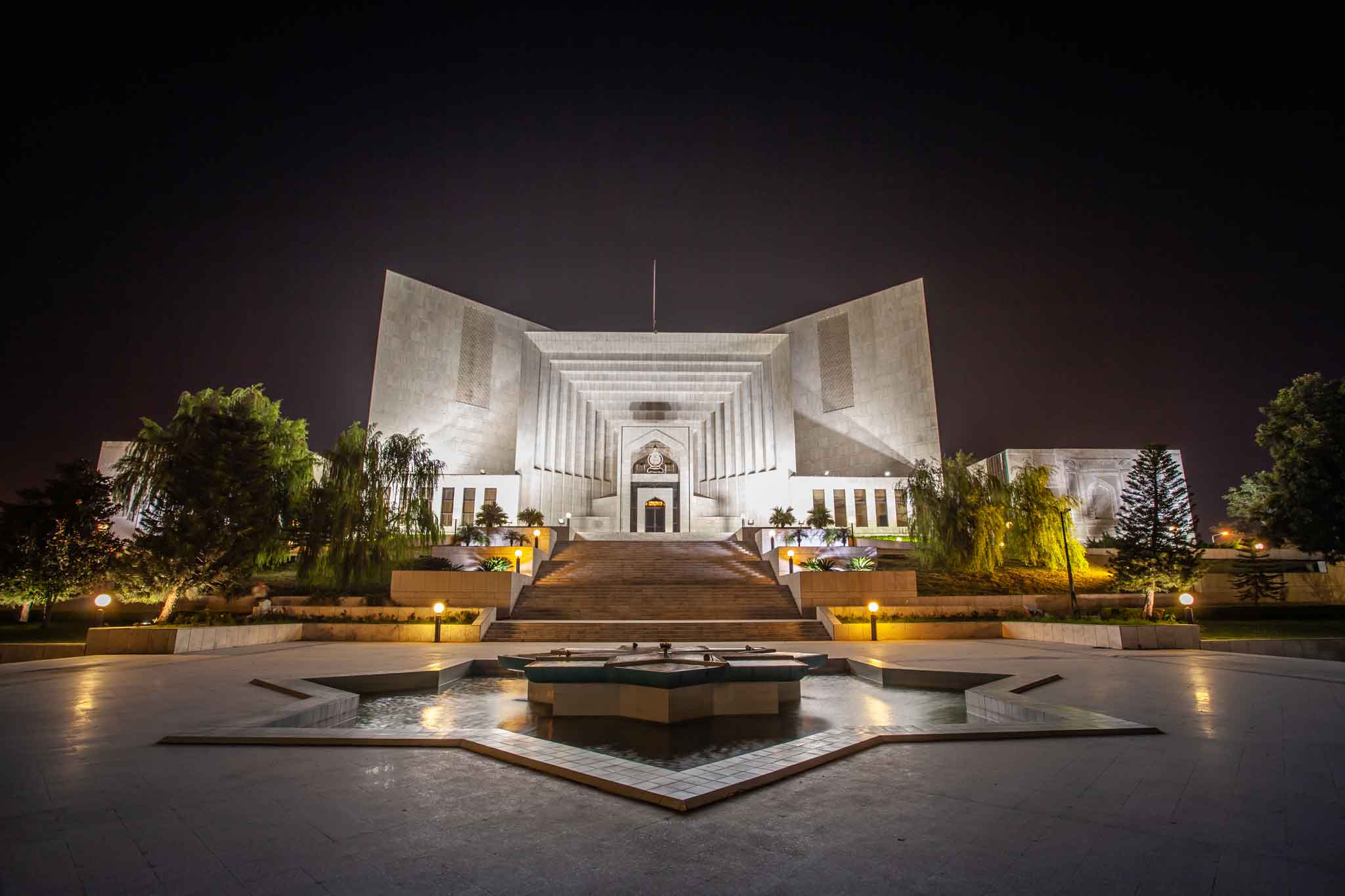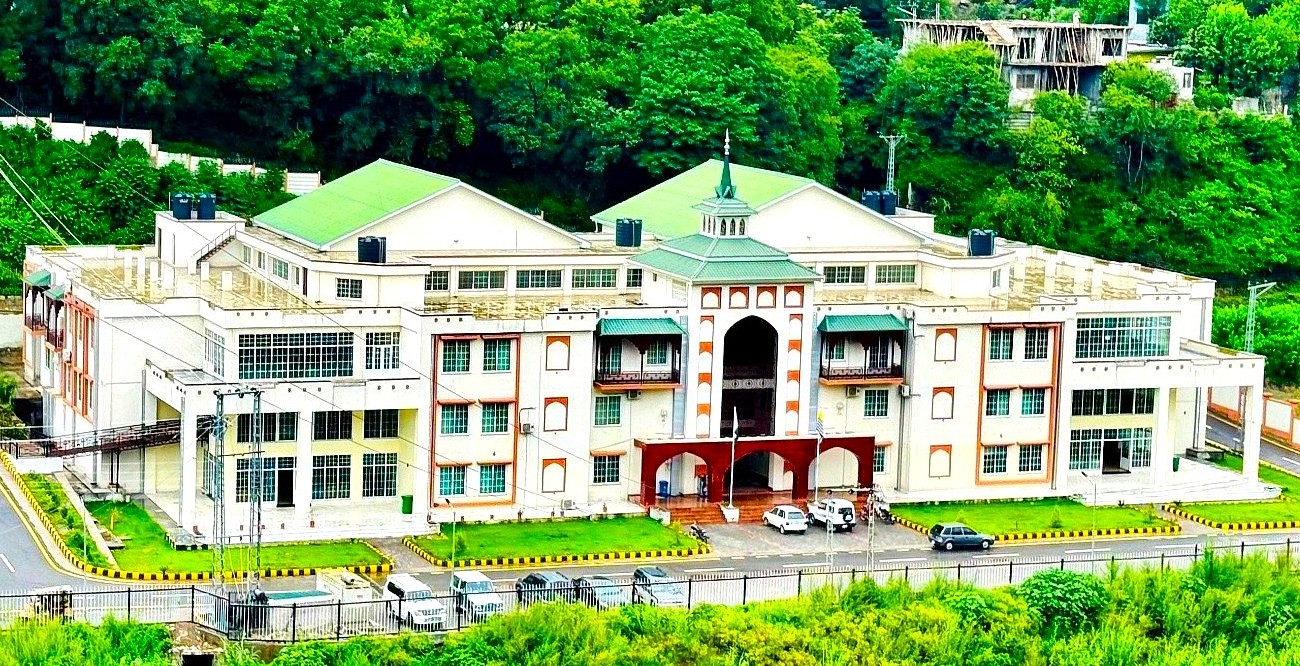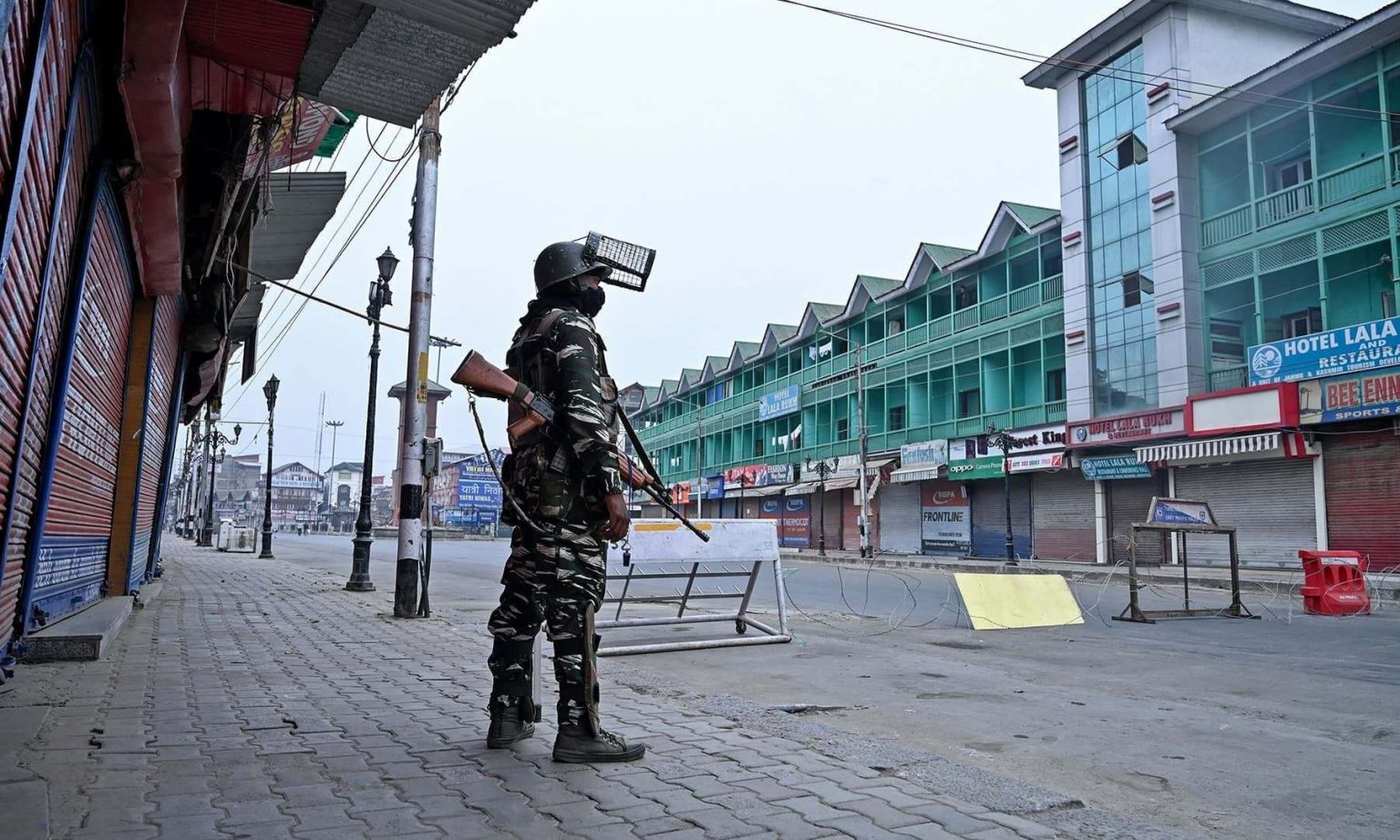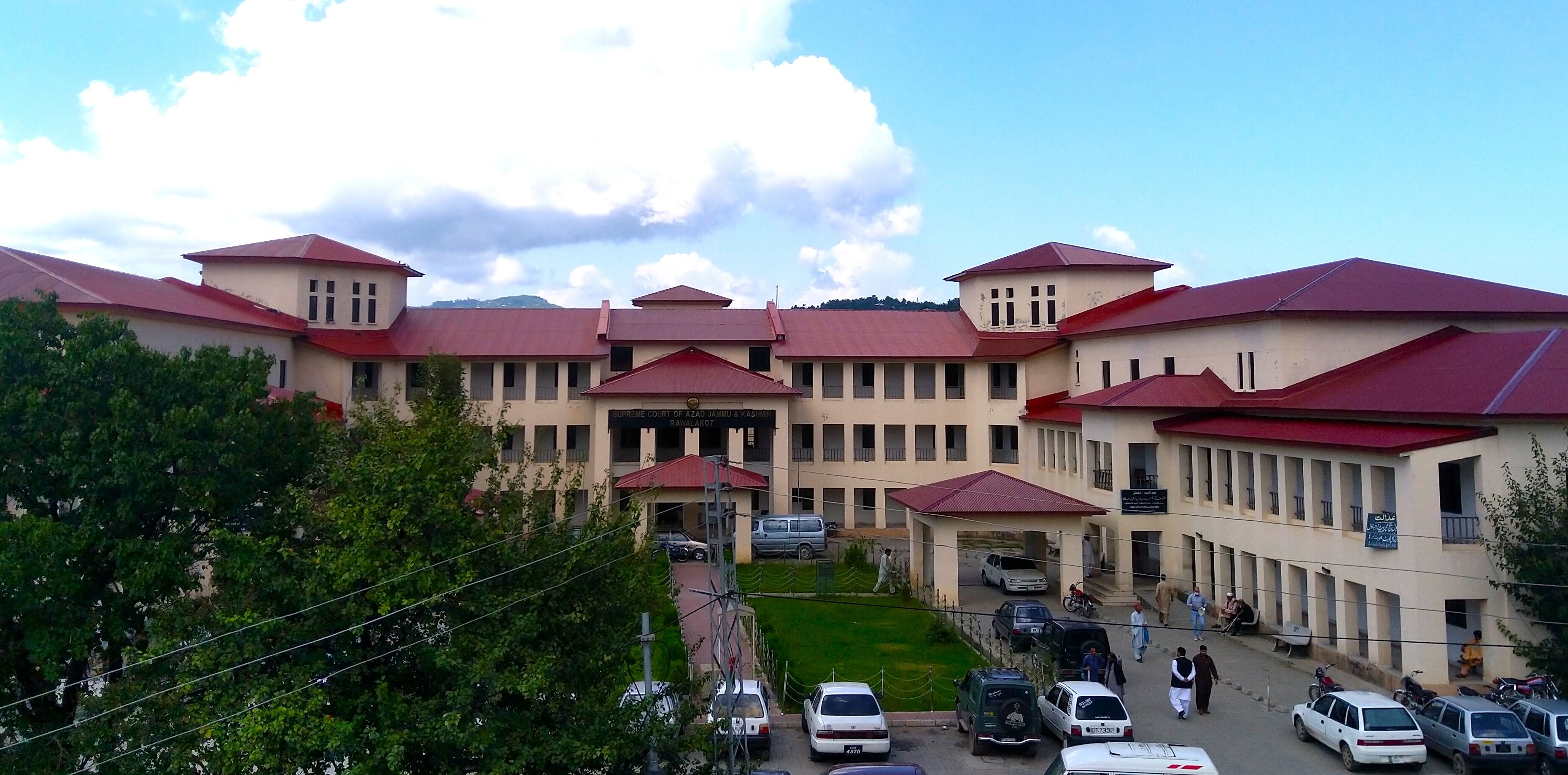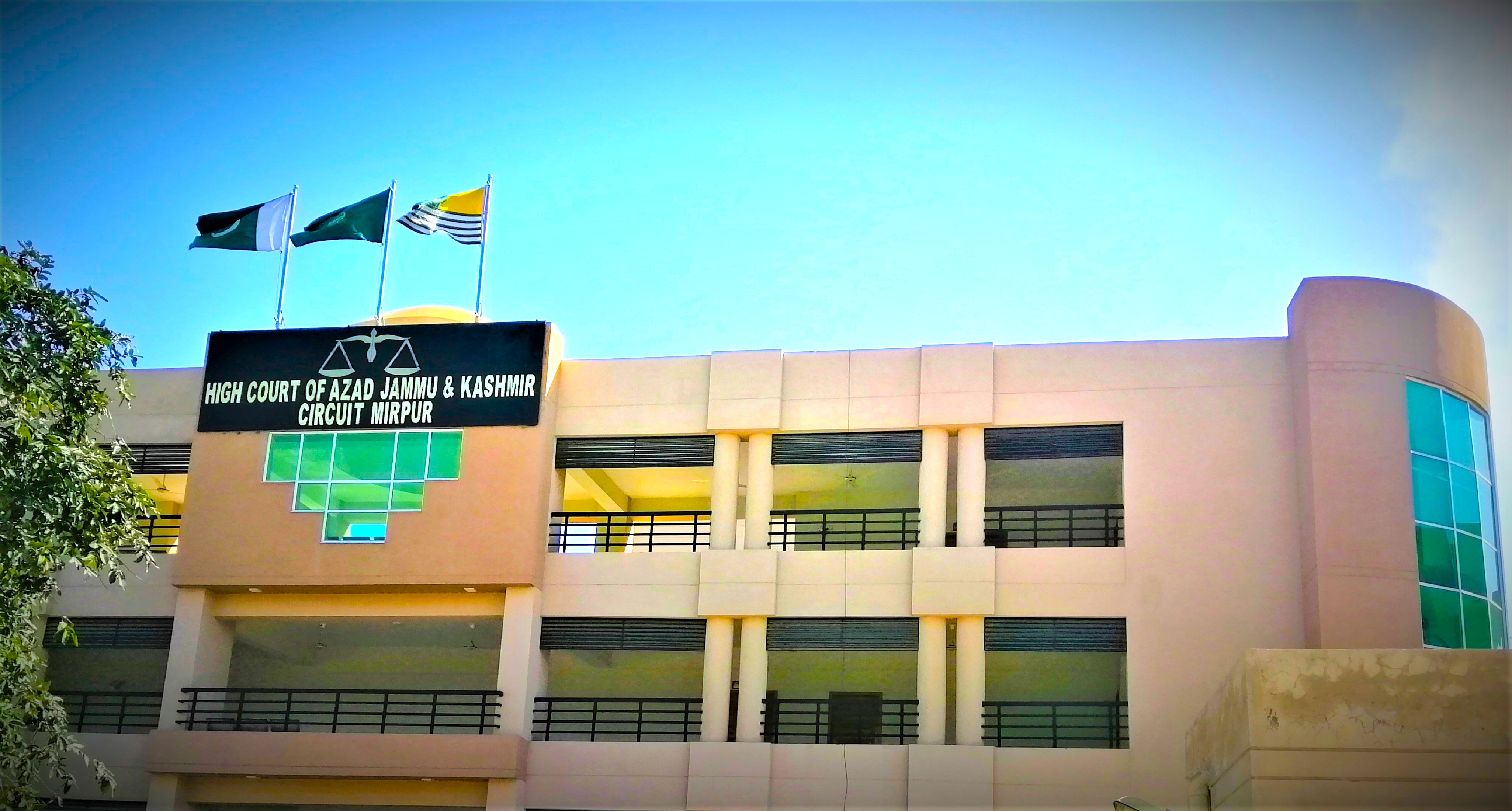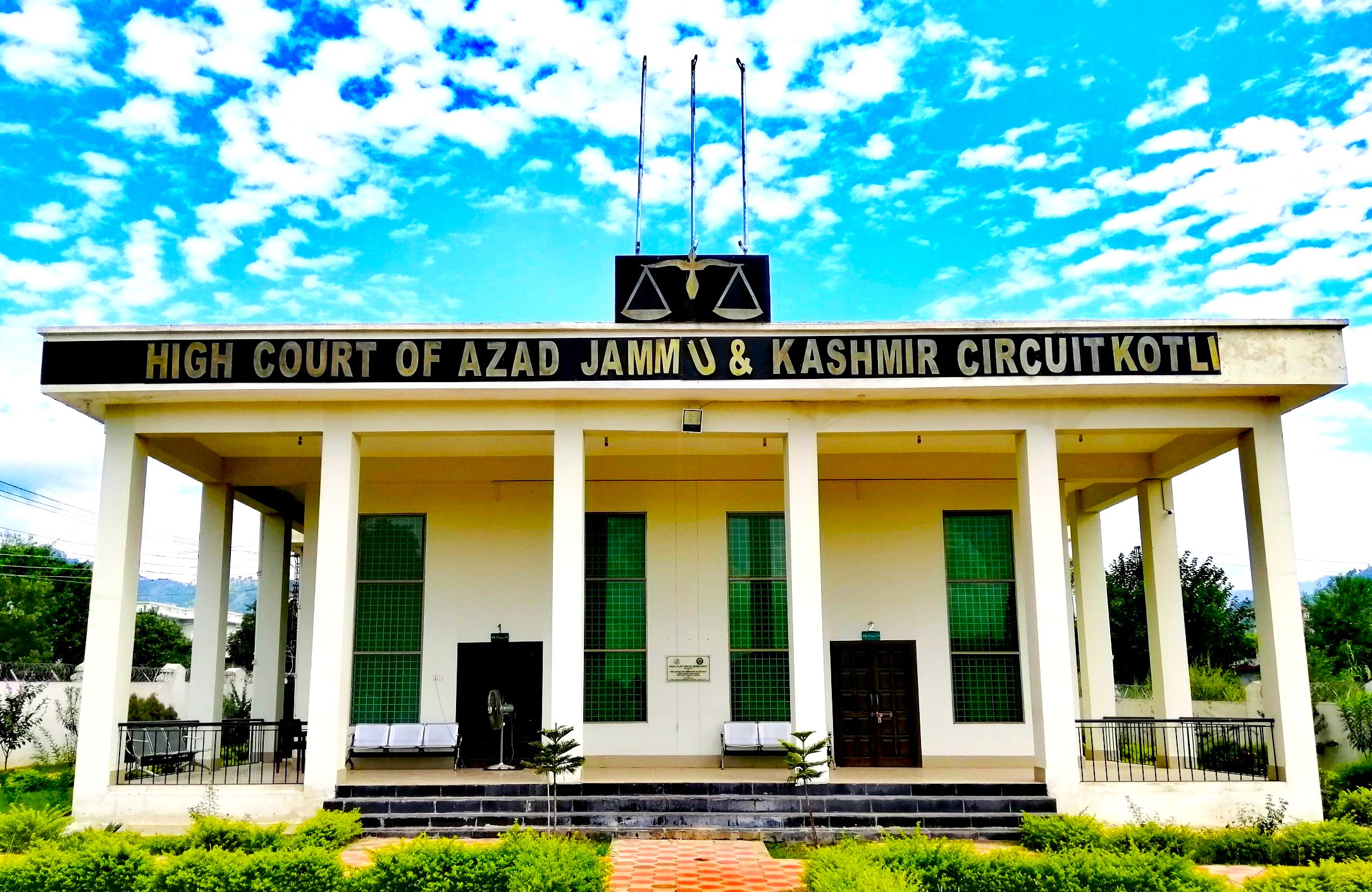The first step taken towards setting up of regular judicial system in Azad Jammu and Kashmir was the passing of Resolution No. 226 titled Judicial Secretariat by the interim Government. It was circulated to Sessions Judges Poonch and Mirpur and District Magistrates Poonch, Mirpur and Muzaffarabad by the Secretary Law and Order under No. 1311-15/147/L/CP-III dated 24.3.1948. It mainly provided that Sessions Judges shall try all cases triable by them under the Criminal Procedure Code and a sentence passed by the court of Sessions was subject to confirmation by the Government in accordance with the provisions of Section 374 of the Code of Criminal Procedure.
JUDICIAL SYSTEM IN AZAD JAMMU & KASHMIR
- Home
- JUDICIAL SYSTEM IN AZAD JAMMU & KASHMIR
JUDICIAL SYSTEM IN AZAD JAMMU & KASHMIR
COURTS AND LAWS CODE 1948
The judicial system in Azad Kashmir was regularized with the passing of Courts and Laws Code 1948 vide Resolution No. 82. It provided for the establishment of the High Court and all the lower courts down to the courts of Sub Judges and Magistrates. It was comprehensive enough and covered almost all aspects of establishment of courts and the laws to be administered by the law courts. It also provided for appointment of Muftis who were appointed by the High Court with the sanction of the Government; however, Mufti Ala was to be appointed by the Azad Kashmir Government for advice on all questions of Islamic Shariah. Qualifications for appointment of Judges of the High Court were also prescribed. Powers of appointment of officers of the High Court and admission of advocates were vested in the Chief Justice. The High Court was the ultimate court of appeal from all civil courts of Azad Kashmir besides other testamentary, intestate or matrimonial jurisdiction as prescribed by law. The High Court was vested with overall control of the courts subordinate to it. The Code also provided for limits of jurisdiction of civil and criminal courts subordinate to it. It also provided for limits of jurisdiction of civil and criminal courts, appeals, transfer of cases, revision etc. and law of procedure. The High Court was vested with the powers to confer magisterial powers under various sections of the Criminal Procedure Code. The High Court was also vested with the powers to frame rules on certain matters. All laws and enactments of the Dogra Rule inconsistent with the provisions of the Code or with the enactments passed or adapted by the Azad Jammu and Kashmir Government were repealed and all other laws so far as practicable were allowed to remain force.
COURTS AND LAWS CODE, 1949
In 1949, the Courts and Laws Code 1948 was revised and reenacted as Courts and Laws Code 1949. The High Court and its subordinate courts continued functioning and exercising powers under this law and the rules issued from time to time called as the Rules of Business of the Government. Its rule 2 provided that all acts done under any law in force on the date of commencement of this Code, shall be deemed to be in every way valid; provided that all proceedings pending on the date of enforcement of this Code, shall be transferred to the Courts set up under this Code. Its section 3 provided that “all laws and enactments of the Dogra Rule inconsistent with the provisions of the Code or with the enactments passed or adapted by the AJK Government are hereby repealed and all other laws shall, as far as practicable, continue to remain in force”. Its Section 48 provided that “in questions regarding inheritance to land, immovable property, rent and goods, successions, special property of females, betrothal marriage, divorce including all forms of dissolution of family relations, will, legacies, gifts, partitions, contracts or any religious usage or institutions, the rule of law shall be:
- (a) The Hindu Law where the parties are Hindu;
- (b) The Islamic Shariat according to codified “Shar’a Mohammadi” (“Muhammadan Law”) where the parties are Muslims;
- (c) The dictates of justice, equity and good conscience according to law of the defendant or any law in force in all other cases.”
Section 49 conferred powers on the High Court to make rules:
- (a) To regulate the practice of the Court;
- (b) To regulate the practice of the courts subordinate thereto;
- (c) To provide for the forms to be used in the High Court and the courts subordinate thereto for such proceedings, books, entries, statics and accounts as it may think; and
- (d) To provide for the inspection of Courts subordinate thereto and supervision of the work thereof…”
Section 60 provided that Urdu shall be the language of the High Court and all subordinate courts.
